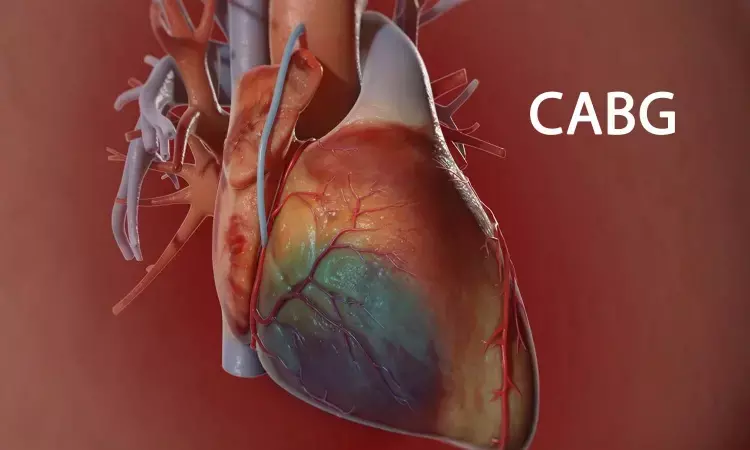- Home
- Medical news & Guidelines
- Anesthesiology
- Cardiology and CTVS
- Critical Care
- Dentistry
- Dermatology
- Diabetes and Endocrinology
- ENT
- Gastroenterology
- Medicine
- Nephrology
- Neurology
- Obstretics-Gynaecology
- Oncology
- Ophthalmology
- Orthopaedics
- Pediatrics-Neonatology
- Psychiatry
- Pulmonology
- Radiology
- Surgery
- Urology
- Laboratory Medicine
- Diet
- Nursing
- Paramedical
- Physiotherapy
- Health news
- Fact Check
- Bone Health Fact Check
- Brain Health Fact Check
- Cancer Related Fact Check
- Child Care Fact Check
- Dental and oral health fact check
- Diabetes and metabolic health fact check
- Diet and Nutrition Fact Check
- Eye and ENT Care Fact Check
- Fitness fact check
- Gut health fact check
- Heart health fact check
- Kidney health fact check
- Medical education fact check
- Men's health fact check
- Respiratory fact check
- Skin and hair care fact check
- Vaccine and Immunization fact check
- Women's health fact check
- AYUSH
- State News
- Andaman and Nicobar Islands
- Andhra Pradesh
- Arunachal Pradesh
- Assam
- Bihar
- Chandigarh
- Chattisgarh
- Dadra and Nagar Haveli
- Daman and Diu
- Delhi
- Goa
- Gujarat
- Haryana
- Himachal Pradesh
- Jammu & Kashmir
- Jharkhand
- Karnataka
- Kerala
- Ladakh
- Lakshadweep
- Madhya Pradesh
- Maharashtra
- Manipur
- Meghalaya
- Mizoram
- Nagaland
- Odisha
- Puducherry
- Punjab
- Rajasthan
- Sikkim
- Tamil Nadu
- Telangana
- Tripura
- Uttar Pradesh
- Uttrakhand
- West Bengal
- Medical Education
- Industry
Drug preconditioning prevents complications, multi organ damage in patients undergoing cardiothoracic surgery

USA: An interim analysis of the phase II START trial showed that RBT-1, a novel pharmacologic approach to preconditioning, benefits patients receiving CABG and/or valve surgery.Preconditioning agent may reduce the risk of multiorgan damage that may improve post-operative outcomes in patients undergoing cardiothoracic surgery.
Administration of the treatment, a combination of iron sucrose (FeS) and stannous protoporphyrin (SnPP), 24 to 48 hours before surgery, remarkably increased three biomarkers of cytoprotective preconditioning (primary endpoint) compared with placebo. Also, there were significant reductions in ICU and ventilator days, major adverse kidney events, acute kidney injury, and 30-day readmissions, André Lamy, Population Health Research Institute, McMaster University, Hamilton, Canada, reported at the 2022 Scientific Sessions of the AHA (American Heart Association).
Renibus Therapeutics, the company that developed RBT-1, announced that the US Food and Drug Administration (US FDA) has granted Fast Track designation to the treatment and will be scrutinized in a pivotal phase III trial that will commence early next year.
Preconditioning is a concept that involves exposure to minor stressors to protect against future damage. In recent decades remote ischemic preconditioning, i.e. the induction of brief periods of ischemia utilizing a sphygmomanometer on the arm or leg, has been tested but has not worked very well.
RBT-1 is a pharmacologic alternative for protecting against damage among multiple organs. It is designed to elicit anti-inflammatory, iron-scavenging, and antioxidant effects.
The START trial was conducted across multiple centres in Canada, the US, and Australia. Participants were randomized into three groups; each group comprised 42 patients: -- placebo, high-dose RBT-1 (90 mg SnPP/240 mg FeS), and low-dose RBT-1 (45 mg SnPP/240 mg FeS). In the trial, RBT-1 was tested in patients undergoing coronary artery bypass graft (CABG) and valve surgery on cardiopulmonary bypass; treatment was given 24 to 48 hours before the operation.
The trial's interim analysis presented by Lamy included 63 for safety (they were given the study drug) and 60 patients for efficacy (they were given the study drug and underwent surgery without delay).
The patient's mean age was 66 years, and 76% of people were men. About half of them underwent CABG, 25% valve surgery alone, and 25% both. The mean surgery's duration was about 4.8 hours, and the meantime on the pump was 1.9 hours, with similar figures in each group.
The study demonstrated the following findings:
- Preconditioning response based on three plasma biomarkers (primary endpoint) —ferritin, heme oxygenase-1, and interleukin-10.
- The mean composite biomarker response was remarkably higher for both the high and low doses of RBT-1 compared with the placebo.
- There were significant raises for each of the three biomarkers with RBT-1 compared to the placebo.
- Several secondary outcomes favoured RBT-1 (combined high and low doses), as well: mean ICU days (2.7 vs 7.0 days), mean ventilator time (1.1 vs 3.2 days), readmissions at 30 days (3% vs 32%), major adverse kidney events at 30 days (5% vs 23%), and acute kidney injury (13% vs 27%).
- Safety was also found to be excellent and adverse events were mostly related to photosensitivity.
The findings indicate a possible benefit of RBT-1, although some of the results could be due to chance related to small numbers.
Reference:
Lamy A. Interim results of a phase 2 study with RBT-1 evaluating postoperative course in patients undergoing elective CABG/valve surgery on cardiopulmonary bypass. Presented at: AHA 2022. November 6, 2022. Chicago, IL.
Dr Kamal Kant Kohli-MBBS, DTCD- a chest specialist with more than 30 years of practice and a flair for writing clinical articles, Dr Kamal Kant Kohli joined Medical Dialogues as a Chief Editor of Medical News. Besides writing articles, as an editor, he proofreads and verifies all the medical content published on Medical Dialogues including those coming from journals, studies,medical conferences,guidelines etc. Email: drkohli@medicaldialogues.in. Contact no. 011-43720751


